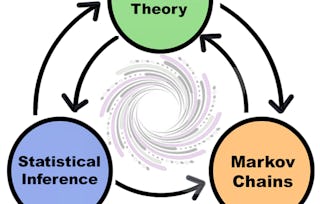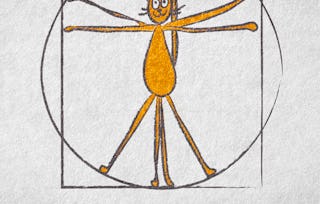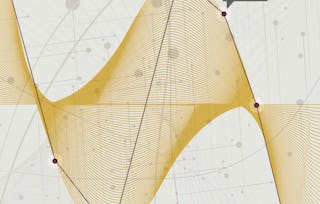This course teaches the fundamentals of scientific research. We approach the research process as a means of systematically reducing uncertainty and demonstrate how conducting a scientific investigation can be posed as an exercise in Bayesian uncertainty quantification. We begin by exploring the scientific landscape to understand the different types of research, where they are conducted, how they are supported, and why each of these types of research is important. We then formalize scientific inquiry and the scientific method and elaborate the research process and its scientific merits. Basic concepts in probability theory are introduced leading to a conceptually simple presentation of Bayes’ Rule. We then illustrate how Bayes’ Rule provides a mathematical framework for the research process. We place an emphasis on the role that research plays in our daily and professional lives and how research skills can help us think critically, whether you’re in a technical field or not. Exercises are designed to help you improve your research skills and think more scientifically.

Fundamentals of Scientific Research Under Uncertainty

Fundamentals of Scientific Research Under Uncertainty

Instructor: Michael Shields
5,909 already enrolled
Included with
42 reviews
Skills you'll gain
Details to know

Add to your LinkedIn profile
See how employees at top companies are mastering in-demand skills

There are 5 modules in this course
In this module, you will be introduced to the landscape of scientific research. Why do we perform research? Who conducts research and where do they conduct it? What different kinds of research are undertaken? Why are the various types of research important?
What's included
7 videos7 readings3 assignments3 discussion prompts
In this module, you will be introduced to the fundamentals of scientific inquiry. What makes an investigation scientific? How do we tell the difference between a scientific and a non-scientific inquiry?
What's included
5 videos5 readings3 assignments2 discussion prompts
In this module, you will be introduced to the different methods of inquiry, most notably the scientific method. You will learn the terminology used in scientific inquiries and define hypotheses and theories. You will learn the steps of the research process and how the research process is scientific.
What's included
4 videos2 readings2 assignments1 peer review
In this module, you will learn about the different types of uncertainty and how these uncertainties are modeled. You will learn some fundamentals in probability theory, specifically conditional probabilities and Bayes’ Rule, necessary to understand how uncertainty is modeled.
What's included
6 videos3 readings2 assignments
In this module, you will learn how the research process relates to uncertainty quantification. You will learn how to pose the research process through Bayesian hypothesis testing. You will learn how to develop a hypothesis and design a plan to test it using UQ methods.
What's included
5 videos2 readings2 assignments1 discussion prompt1 ungraded lab
Instructor

Offered by
Explore more from Research Methods
 Status: Free Trial
Status: Free TrialJohns Hopkins University
 Status: Free Trial
Status: Free TrialUniversity of Colorado Boulder
 Status: Free Trial
Status: Free TrialUniversity of Amsterdam
 Status: Free Trial
Status: Free TrialArizona State University
Why people choose Coursera for their career

Felipe M.

Jennifer J.

Larry W.

Chaitanya A.
Learner reviews
- 5 stars
92.85%
- 4 stars
7.14%
- 3 stars
0%
- 2 stars
0%
- 1 star
0%
Showing 3 of 42
Reviewed on Dec 26, 2024
I recommend this course to build foundation of Scientific Research Under Uncertainity. It takes care of necessary learning dimensions of these topic and keeps motivated

Open new doors with Coursera Plus
Unlimited access to 10,000+ world-class courses, hands-on projects, and job-ready certificate programs - all included in your subscription
Advance your career with an online degree
Earn a degree from world-class universities - 100% online
Join over 3,400 global companies that choose Coursera for Business
Upskill your employees to excel in the digital economy
Frequently asked questions
To access the course materials, assignments and to earn a Certificate, you will need to purchase the Certificate experience when you enroll in a course. You can try a Free Trial instead, or apply for Financial Aid. The course may offer 'Full Course, No Certificate' instead. This option lets you see all course materials, submit required assessments, and get a final grade. This also means that you will not be able to purchase a Certificate experience.
When you purchase a Certificate you get access to all course materials, including graded assignments. Upon completing the course, your electronic Certificate will be added to your Accomplishments page - from there, you can print your Certificate or add it to your LinkedIn profile.
Yes. In select learning programs, you can apply for financial aid or a scholarship if you can’t afford the enrollment fee. If fin aid or scholarship is available for your learning program selection, you’ll find a link to apply on the description page.
More questions
Financial aid available,
¹ Some assignments in this course are AI-graded. For these assignments, your data will be used in accordance with Coursera's Privacy Notice.

